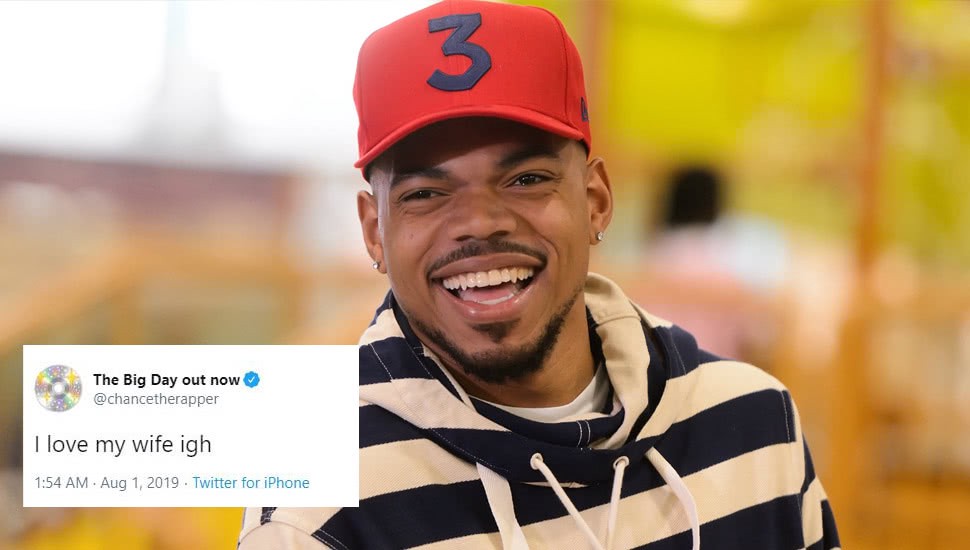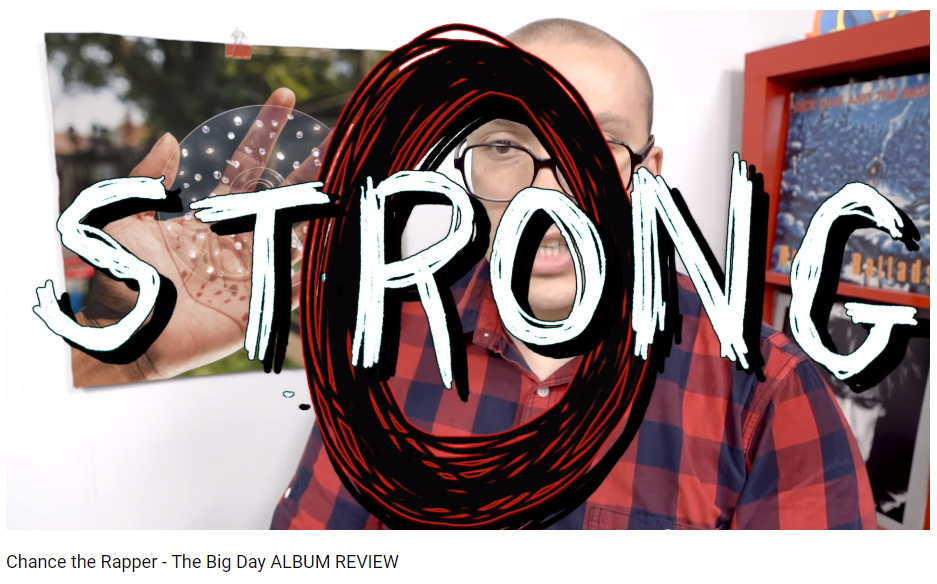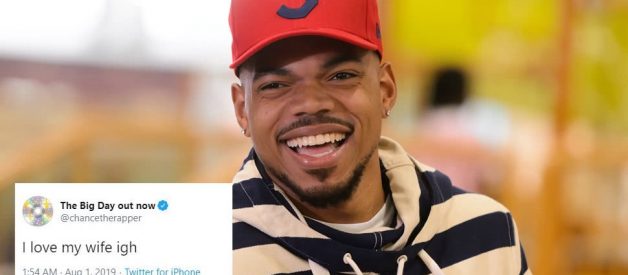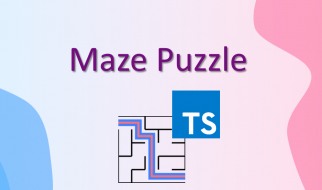Chance and Drake?s new releases mark another chapter in the death of the mixtape. Where are those low-pressure releases going?

This week, Drake dropped a collection of previously released songs onto major streaming services. The project, Care Package, is just the latest example of artists merging their past ?mixtape? discography with their major studio releases. Chance the Rapper recently brought back his Acid Rap and 10 Day mixtapes to help promote his new album, Joey Bada$$ offered his 1999 project, and that?s only a fraction. Fans of these artists have been thrilled with the re-releases, making it even easier to access projects they already love. As these projects become available on major platforms, it marks another milestone in the extinction of the mixtape.
Many of these projects dropped years ago, before paid streaming became the single dominant force in music consumption. Since the end of the SoundCloud era, mixtapes have been blended into the classic project release. Coloring Book, Chance?s 2016 project, comes to mind.
Chance did his best to market the project as a mixtape, including wearing and selling a ?3? hat in reference to his third mixtape and a song on the project literally called Mixtape. Despite the classification, the project went on to reach the top ten of Billboard album charts as well as winning the ?best rap album? Grammy. Coloring Book marked another milestone in the death of the mixtape.
?Now that the mixtape is no more, where is the sandbox for these rappers to experiment and build from??
The mixtape has a long and storied history, especially in rap music. During his peak, Lil Wayne was the mixtape king, dropping projects of freestyles on top of some of the biggest beats in music that year. These projects helped Wayne earn the title of ?best rapper alive? and were a proving ground, without having the pressure of a major release. Many rappers made names for themselves strictly off mixtapes, never having to conform to the structures of a debut album. Now that the mixtape is no more, where is the sandbox for these rappers to experiment and build from?
The buzz created from this sandbox also led to a natural anticipation for an artist?s debut album. Artists who had built a name for themselves on the internet, mostly with rap nerds, had the chance to balloon their fan base. Take Frank Ocean for example. After building some hype from his Nostalgia, Ultra mixtape and his association with Odd Future, he blew up with the release of Channel Orange, his debut album.

Nipsey Hussle also did this. Known as a mixtape rapper for almost all his career, he finally released his debut Victory Lap in early 2018. Hussle clearly knew the irony of releasing a debut album a decade into his career. He was already beloved in his community and was starting to create a name for himself around the country. Nevertheless, Victory Lap ballooned his status to some extent, and ended up earning him a nomination for the ?best rap album? category at the 2019 Grammy Awards. He attended the awards, completing his ?victory lap? before his tragic death the next month.
Now, we have releases like Chance the Rapper?s The Big Day. After three self-released mixtapes, Chance released his ?debut album? last week. However, it didn?t feel like the event a debut album release used to be. Chance had already headlined multiple major festivals, completed a solo arena tour, and hosted Saturday Night Live. Who was he debuting to?

When the album came out, the confusion around the release turned into disappointment, as the project was met with lukewarm reviews and received harsh criticism from long-term fans. In the end, there wasn?t a huge shift or boom in quality or theme (although one comes to mind) between the album and his previous mixtapes. One of the only immediately noticeable differences from past Chance work was the bloat of it all. At 22 tracks and 77 minutes, it seems like he took the idea of a debut album and figured it meant fill up as much space as the CD would allow. It all felt a bit like forced hype followed by a quick (or looong) let down.
In the project, there are a couple of songs that show a new sound from Chance, including Hot Shower and The Big Day. These songs, as with much of the album, were received relatively poorly. Had mixtapes been a distinct option, maybe Chance could have experimented with these new styles and seen the reaction. Perhaps the album would?ve been scrapped or at least restructured. There was no way to ?focus group? the project before it was too late.
?Chance had already headlined multiple major festivals, completed a solo arena tour, and hosted Saturday Night Live. Who was he debuting to??
Chance?s case is a bit unique, as his career path was an evolved version of the classic mixtape-to-album road, but it shows the void that was created where the mixtape used to be. Artists would often drop mixtapes between projects to hold fans over and showcase some new sounds. As those smaller-scale releases have become less popular, artists are continuing to search for a new sandbox.
Single releases are the first option that comes to mind. Chance experimented with this strategy when he released four singles in a week last year. None of them sounded like Hot Shower or a lot of the album, but they held fans over and gave them a taste of what (they thought) would come next. These singles could be dropped in a couple ways. We?ve seen Tyler, the Creator drop sporadic singles between albums, some freestyles from studio sessions for new projects, some just instrumentals, and some loosies from past project cycles. Schoolboy Q went particularly meta with this kind of drop, releasing a single about fans whining to him about not dropping music between projects.
Bigger artists are starting to treat these releases as events by themselves. Last fall, Ariana Grande dropped the Thank U, Next single, only a few months after the release of her long-awaited fourth studio album. Its success was followed by a whole new project following that sound (her best and biggest yet).
Artists could also release mixtapes in an EP style. Short projects totaling around five songs. While they don?t have the volume of a Da Drought 3 style tape, they can give fans a taste of a new sound to come, like 2 Chainz? The Play Don?t Care Who Makes It. They could even be a short outlet for a creative spark that an artist doesn?t eventually commit to, like Mick Jenkins? Waves EP or the Zac Brown Band Grohl Sessions project.
Lastly, artists could try to just power through the extinction and try to keep dropping mixtapes. Amine recently released a project, ONEPOINTFIVE, that he promoted almost solely by not calling it an album. Denzel Curry just dropped ZUU, a 30-min project following his 2018 album TA13OO. He came out with two singles, not explicitly promoting something bigger, then released the 12-track project after announcing it only 10 days earlier. Running on a 2-year release schedule for much of his career, Curry has been dropping smaller projects on the ?off years?. This project was the longest of those so far, the closest to the classic ?mixtape? style.
As artists become more familiar with the advantages and disadvantages of streaming platforms, there will more options for artists to experiment with new sounds. One thing we know at this point, is that calling something a mixtape or an album doesn?t really matter. Fans aren?t going to be satisfied with a 20-song throwaway project. There must be a feeling of purpose in any release, even if it is in this experimental sandbox.


